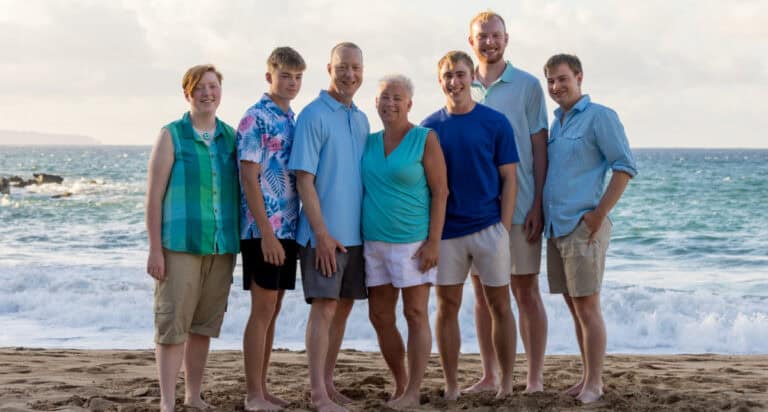Liane Kupferberg Carter has written a memoir of a modern American family. With great tenderness, she tells us about her parents and extended family, her husband, Marc, and two children using skills she honed in her career as a writer and journalist. In each deeply moving chapter of Ketchup is My Favorite Vegetable: A Family Grows Up with Autism we learn about Mickey, her 23-year-old younger son, who is on the Autism Spectrum. In describing life with Mickey, Carter covers the entire arc of parenting a child with ASD, giving other families with special needs children a candid view into what they might anticipate on their own road ahead.
In Ketchup is My Favorite Vegetable, Carter tells us about Mickey’s diagnosis of autism as a toddler and about his epileptic seizures that began in adolescence. We see how she and Marc tirelessly seek the assistance of medical professionals and educators as they look for what will help Mickey. She writes honestly about her heartbreak and exhaustion but also takes time to praise dedicated teachers and therapists, loving neighbors and, especially her oldest son, Jonathan:
Siblings are the profoundly unsung heroes of autism. They are the children who grow up in therapists’ waiting rooms, learning lessons in self-sacrifice far too soon. Jonathan is our hero.
Throughout her beautiful memoir, we watch Mickey grow up and we feel the depth of Carter’s pride and love as Mickey celebrates his Bar Mitzvah, asks a date to Prom, and graduates from high school….happy milestones in every family but especially joyous ones for the Carters. Mickey’s life after graduation is a much less certain time as the following excerpt shows:
Excerpt from Ketchup is My Favorite Vegetable: A Family Grows Up With Autism
Graduation fever was spreading through Mickey’s program. Suddenly, it felt, both parents and students alike were itching to leave the security – and the restriction — of the high school’s self-contained class. Many parents were opting to send their children to residential programs far away the following fall. It made me feel coerced into making decisions I wasn’t yet ready to make. I roiled with fear, uncertainty and sadness.
I thought how when Jonathan was preparing to go to college, there’d been so many resources available. We’d had a whole shelf of books to guide our family. But for Mickey and us, there was no Fiske’s Guide to Colleges. No Barron’s. There is no book for an autistic child turning twenty. No U.S. News and World Report ranking best vocational opportunities; no handbook rating residential programs for developmentally disabled young adults. We were making it up as we went.
Petitioning the state for legal guardianship had been wrenching. Getting him Supplemental Security Income and entering the labyrinth of federal bureaucracy had been nightmarish. But this step – preparing to leave high school, and the world of what the government promises every disabled child, a “free and appropriate public education,” wasn’t just unnerving.
We were terrified.
Carter quotes a saying she says is a familiar one to the autism community: “If you’ve met one person with autism, you’ve met one person.” In her book, Liane Kupferberg Carter has written her son’s unique story with great honesty, self-awareness and love.











